eBook Edition published 2013.
This is NA Fellowship-approved literature.
Table of Contents
NA offers us a path, a process, and a way of life. The work and rewards of recovery are never-ending. We continue to grow and learn no matter where we are on the journey, and more is revealed to us as we go forward. Finding the spark that makes our recovery an ongoing, rewarding, and exciting journey requires active change in our ideas and attitudes. For many of us, this is a shift from desperation to passion.
In recovery, we are free to explore and to consider who we are and who we want to become. The changes we experience in the process can feel pretty disruptive to our identity and our relationships, but through that struggle we find that our acceptance, love, and faith continue to grow. Though our goals and our methods may vary, what we have in common are the tools and principles that allow us to be who we are. Together we rise to a point of freedom.
The spirituality we experience in NA is simple and practical: It allows us to live in harmony with our world and to experience empathy and compassion for others. The steps are a path to spiritual growth; we awaken to our own spirituality. As we develop a relationship with a Higher Power in whatever way we understand that, we come to understand that our spirituality is not a part of our lives; it is a way of life that brings us to an understanding of our purpose and the freedom we had been seeking all along.
Learning to live in our bodies isnt easy. We havent been kind to them, and often they bear the painful scars of our addiction. Making peace with our physical selves is necessary for our physical survivalbut it is also a part of our amends process, an act of self-acceptance, and a way we experience freedom, healing, and joy. This chapter addresses the way we treat ourselves in recovery, learning to find pleasure in being physically alive and awareand facing our aging, our vulnerability, and our mortality.
Our recovery is based in relationships, and most of us struggle with them in one way or another. Our relationships with one another in the rooms, with the families we come from and the families we create, are all places where we learn to practice principles, including honesty, empathy, and intimacy. Love is a healing presence in our lives, and we experience its power when we allow ourselves to reach out.
As we get some time in recovery, we get some time in the world as well. Social acceptability does not equal recovery, to be sure, but that doesnt mean theyre mutually exclusive, either: For many of us it is something we must learn along the way. Our work habits and our beliefs about work, education, money, and stability change and grow as we stick aroundsometimes in surprising ways. Learning to deal with success and failure, with risk and responsibility, with stability and change are all part of the process some of us call growing up in recovery.
From the first time we find hope, we are in an ongoing process of spiritual awakening that can last our whole lives, if we are willing. Continuing to feel that our recovery is alive requires us to keep growing. Isolation and complacency hold us back from freedom in ways we may not even feel until we are stuck. Generosity of spirit is the antidote for loneliness and alienation. Being of service frees us into our own lives and opens us to the spirit of love that surrounds us. We experience unconditional hope and understand that there is no limit to how much better we can get. No matter how far we have come, the journey continues.

Our Basic Text assures us that more will be revealed, and our experience bears that out. More has been revealed in the years since those words were written, and more continues to be revealed every day that we live clean and practice the principles of recovery. We grow as individuals, and we also grow and mature as a fellowship. As we learn from our experience, we pass on that knowledge. This means that each generation of newcomers has more resources available in NA than the one before. Whether this strengthens or weakens us depends entirely on how well we understand our primary purpose and practice the principles of sharing, caring, and service.
Our greatest treasure and resource is the depth of our personal knowledge of the recovery process. We share that treasure at meetings, at our celebrations, over coffee, and in our literature. Once again, we offer in written form as much as we can of our collective experience, strength, and hope. This book, written by addicts for addicts, is a snapshot of our fellowship: addicts in recovery who have helped each other face life on its own terms, without the use of drugs, for consecutive days, months, years, and decades. It is intended both as an offering to new members and to rekindle the passion of our oldtimers. It could not possibly contain all that our members know or believe, but it does reflect what we have been discovering and sharing since 1982, when our Basic Text was approved.
The first draft of a book titled Living Clean was created in 1983, but the history of this project goes back even further. As our Basic Text, Narcotics Anonymous, was being written, some of our members knew that it would not be our last word on the subject of living the NA way. The versions that were created in 1983 and 1990 contained a lot of concrete advice, suggestions, and rules for how to get clean and stay clean. But most of us dont follow rules very well. Our experience is sometimes very different from what we wish were true about the process. We found that what we share in common are not the particular actions we take, but the principles we try to practice as we live. In the years that have followed, generations of addicts have gotten clean and stayed clean using the Basic Text as our guide, and that experience has given us a perspective on the principles of recovery unlike any other.
We knew from the beginning that we were describing a problem not related to any single substance, but a disease that, left untreated, would manifest in one symptom or another until it killed us. A focus on one symptom or substance is too narrow for us. Just as we understand that addiction affects all aspects of our lives, we can see that recovery affects everything we do. Our relationships with our families, our work, our spiritualityeven our own bodiesare profoundly shaped by where we come from and the ways in which we address our disease. Just as the rewards of our recovery are often beyond our wildest dreams, we know that the impact of our recovery on our own lives and on those around us is beyond measure. We may never know the good we do just by staying clean and living a principled life to the best of our ability. Our gratitude for our new way of life motivates us to keep giving more, living more, and loving more.

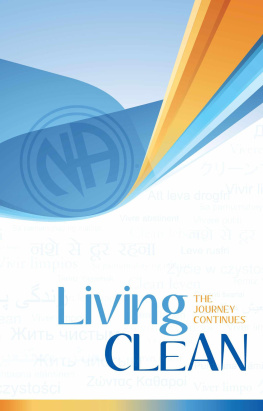
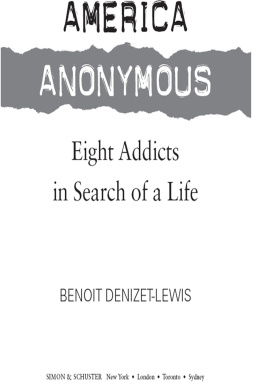
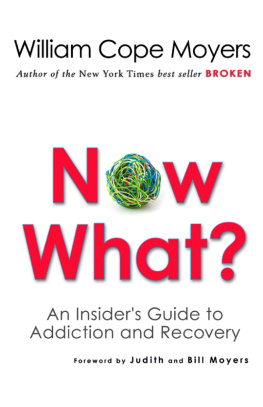

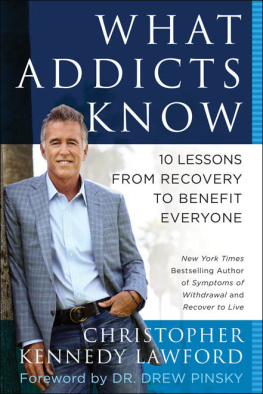
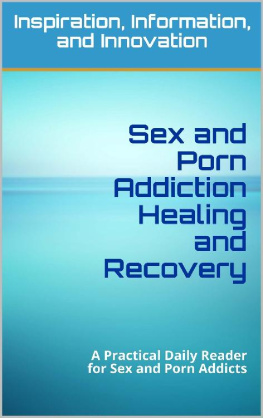


 and The NA Way
and The NA Way